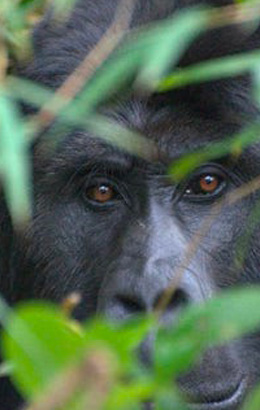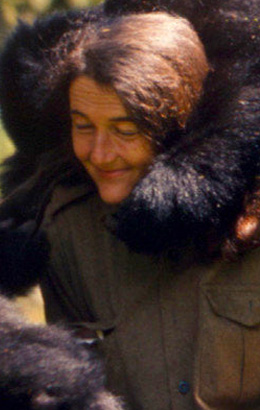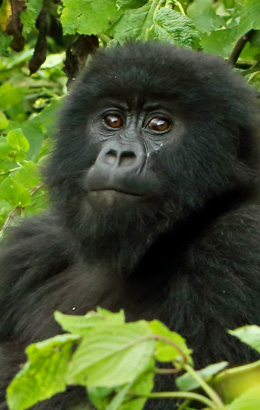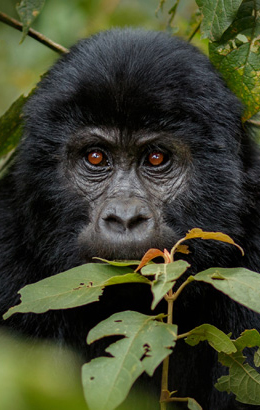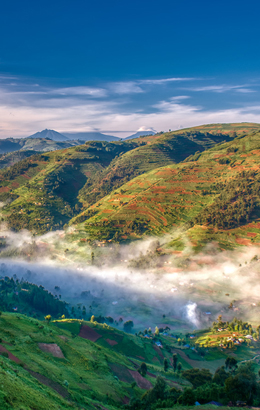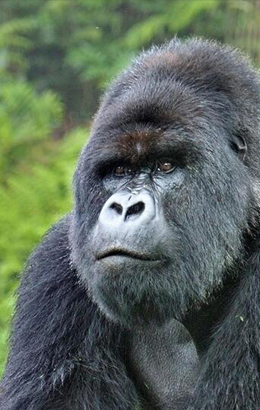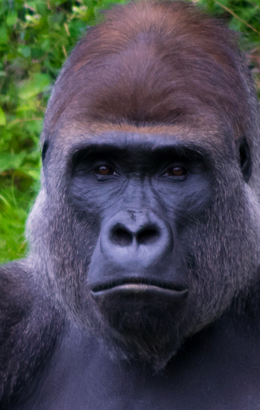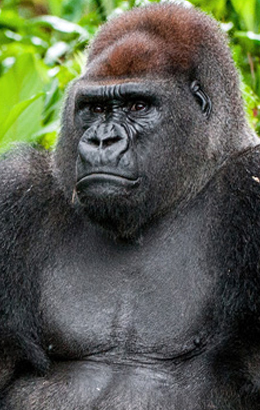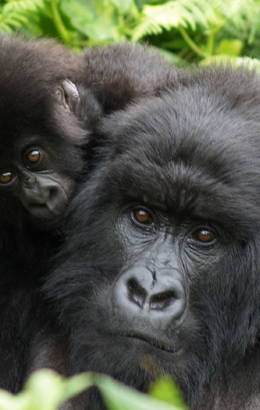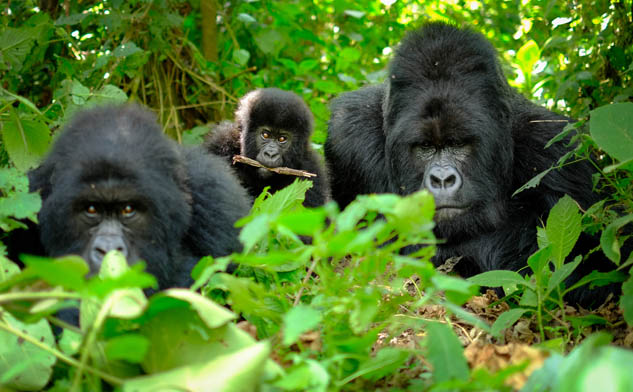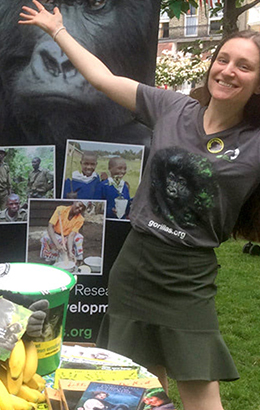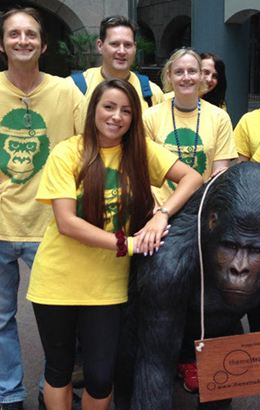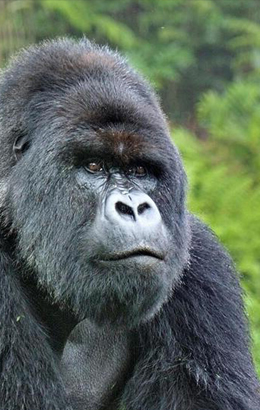Fixing the water woes of gorillas and humans
Climate change is pushing temperatures up. Not much, but enough to make gorillas dangerously dehydrated. Gorillas have evolved to get all the water they need from vines, leaves and the juicy stems of banana plants.
But as climate change nudges temperatures ever higher, they are now being forced to find alternative sources of water, including streams on the edges of the National Park that are also used by people and their livestock.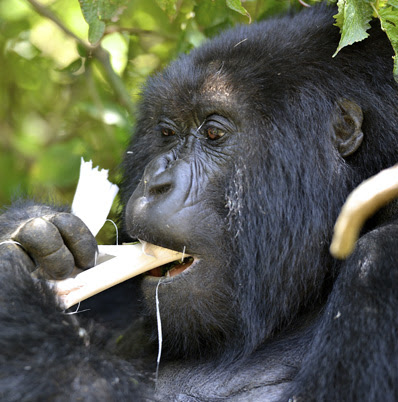
These streams can often be dirty and dangerous. Vets have reported cases of gorillas falling ill from waterborne diseases. And they are not ideal for the local communities, either. As well as being potentially dangerous, getting water from streams can be unreliable as they run to a trickle in dry season. It’s also inconvenient. People, usually women or children, have to take time away from their education or from trying to earn a living, to collect water. And finally, it increases the chances of gorilla-human interactions.
The solution? Small wells and giant lobelia. To help humans, The Gorilla Organization is giving communities in the area easy and reliable access to clean drinking water. With the support of our corporate donor That Gorilla Brand and NGOs Just a Drop and Voluntary Action for Development, wells are being installed in villages along the edge of the Bwindi forest.
New wells for two villages
Most recently, shallow wells and protected springs have been installed in the villages of Kanyamahene and Nymasinda.
That means more than 2,500 people are now enjoying easy access to clean water for the first time, empowering them to focus on making a living without relying on the resources found in the precious gorilla habitat.
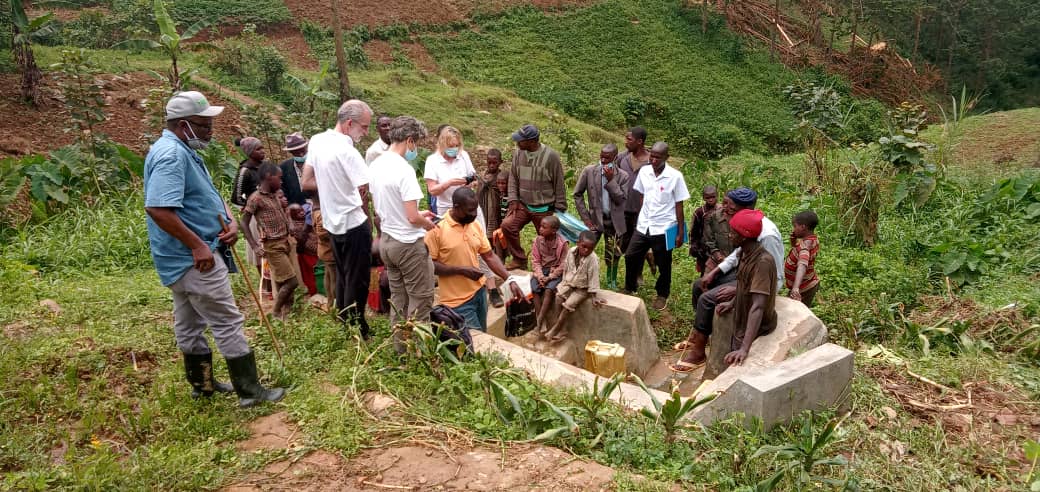
We have also become the first conservation charity to start planting giant lobelia, which can grow up to six metres tall and are incredibly juicy. In fact, they are 90% water. Just one plant has enough water to keep a whole gorilla family hydrated.
As Dr Gladys Kalema-Zikusoka, leading primatologist and Gorilla Organization trustee, explains: “It’s hugely important that gorillas stay hydrated, ideally through a plentiful supply of plants with high water content.” This is especially important for mountain gorillas, the endangered sub-species living in the Bwindi forests. They evolved to live at high altitude, with thick fur that now puts them at risk of dehydration as temperatures creep upwards.
Both the drilling and planting projects are now pushing ahead at a steady pace, illustrating the importance of joined-up community conservation. However, while plants like giant lobelia are slow-growing and will take a few more years to be sufficiently big to sate the biggest thirsty silverbacks, the water projects are proving to be an instant success.
New wells prove a hit
In March, a Gorilla Organization team was joined by representatives from Just a Drop and Voluntary Action for Development in a visit to the villages benefitting from new wells. They found that the communities themselves have embraced the wells, donating money for their upkeep and using them daily. No more time-consuming walks to unreliable streams and, more importantly, more time to focus on developing livelihoods, reducing dependence on the resources of the forests and keeping humans safely apart.
We want to reach even more people with our projects and depend on donations to support communities and keep gorillas safe. Please donate today:
